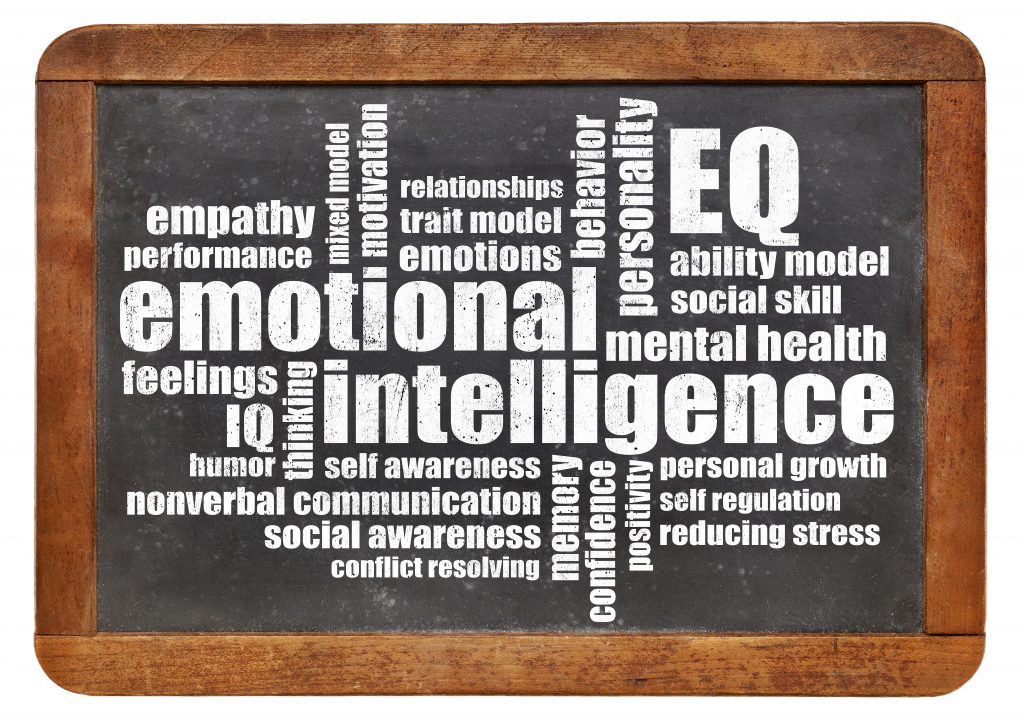
I took an EQ test this past weekend and it wasn’t pretty. I now need to face the fact that I have some serious work to do in the area of ‘self-management.’ I had never heard of the concept of an EQ score (emotional intelligence ) until I started following Dr. Travis Bradberry on LinkedIn. Turns out, while I may have a decent IQ my EQ has most likely defined my ability to succeed (or not succeed) in the work environment. Do you know your EQ score?
Essentially the concept of emotional intelligence is this: you feel and acknowledge the emotions of a given moment in one part of your brain, before the logical part of your brain has a chance to register and form a rational response to the situation. People with high EQ scores know how to respond to their emotional triggers, and respond in a way that is productive. I think of as being similar to the lesson I learned years ago relative to weight control: your brain needs some time to recognize that there is food in your stomach. If you don’t give it time, you will keep going until suddenly you are filled with regret when you realize you overdid it. How many times have you had to apologize over an emotional reaction, because you did just that? You reacted first and thought and reason came second. I know I have done that more often than I would like to admit.
We cannot control all the events of the day, but we can control how we react to them. We just need to employ strategies to recognize our emotions and react in a way that allows us to remain in control. In Emotional Intelligence 2.0, the authors explain what goes into your EQ and strategies to improve your score. While I scored pretty well in self-awareness, I do need to work to improve my self-management skills. “Self-management is your ability to use awareness of your emotions to actively choose what you say and do…” While there are (17) strategies for this category alone, here are the ones I will focus on first:
- Count to Ten (it gives your brain some time to catch up)
- Sleep On It (take care of yourself)
- Smile and Laugh More
- Take Control of Your Self-Talk (reduce the negative, increase the positive)
- Visualize Yourself Succeeding
- Focus Your Attention on Your Freedoms, Rather than Your Limitations
- Speak to Someone Who is Not Emotionally Invested in Your Problem
- Accept That Change is Just Around the Corner
I encourage you to pick up a copy of Emotional Intelligence 2.0, and take the test yourself (every book comes with a passcode to allow you to take the test for free). Then, identify the areas where you can improve so you can become even more fabulous! Being aware of and in control of our emotions is another way to feel confident – be strong!